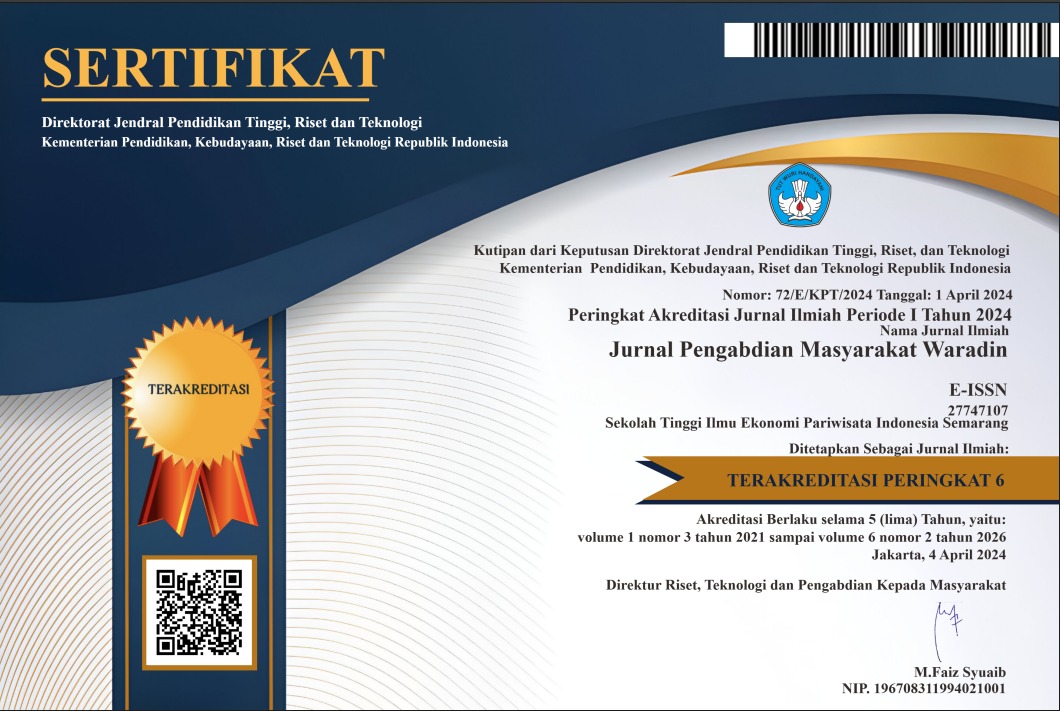Model Literasi Keuangan untuk Anak Migran Indonesia di Malaysia
DOI:
https://doi.org/10.56910/wrd.v4i3.378Keywords:
SIKL, financial literacy, Indonesia, MalaysiaAbstract
Indonesian School of Kuala Lumpur (SIKL) is an educational institution under the auspices of the Indonesian Embassy in Malaysia. SIKL serves as a school for the children of Indonesian migrants residing in Malaysia. It plays a strategic role and stands at the forefront of educational diplomacy in Malaysia, contributing to the development of Indonesia’s human resources. To keep pace with the rapid advancements in education, science, and the waves of globalization and modernization, SIKL continually strives to achieve excellence in education quality, including the quality of its teaching staff, facilities, output, and all supporting components of the learning process, both within and outside the school environment.The financial literacy activities for children aim to broaden students' knowledge in managing finances from an early age. This community service initiative seeks to introduce financial literacy to Indonesian immigrant children, aged between 5 and 15 years, who lack access to formal education and healthcare. The session is structured around the use of the Monopoly board game, an engaging tool designed to teach basic financial concepts interactively. The outcomes of this session were encouraging and enlightening, highlighting the children's enthusiasm and desire to learn despite their challenging circumstances
References
Drever, A. I., Odders-White, E., Kalish, C. W., Else-Quest, N. M., Hoagland, E. M., & Nelms, E. N. (2015). Foundations of financial well-being: Insights into the role of executive function, financial socialization, and experience-based learning in childhood and youth. Journal of Consumer Affairs, 49(1), 13–38. https://doi.org/10.1111/joca.12068
Lusardi, A., & Mitchell, O. S. (2013). The Economic Importance of Financial Literacy: Theory and Evidence. SSRN Electronic Journal. https://doi.org/10.2139/ssrn.2260193
Mandell, L., & Klein, L. S. (2009). The impact of financial literacy education on subsequent financial behavior. Journal of Financial Counseling and Planning, 20(1), 15–24.
Moffitt, T. E., Arseneault, L., Belsky, D., Dickson, N., Hancox, R. J., Harrington, H. L., Houts, R., Poulton, R., Roberts, B. W., Ross, S., Sears, M. R., Thomson, W. M., & Caspi, A. (2011). A gradient of childhood self-control predicts health, wealth, and public safety. Proceedings of the National Academy of Sciences of the United States of America, 108(7), 2693–2698. https://doi.org/10.1073/pnas.1010076108
OECD. (2012). Education at a Glance 2012. https://doi.org/10.1787/eag-2012-en







